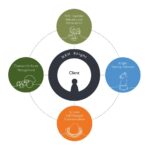Here, our financial experts take a close look at what’s happening in the world of finance.
We uncomplicate breaking announcements from the Reserve Bank of Australia (RBA), the Australian Taxation Office (ATO), the Australian Securities and Investments Commission (ASIC) and the Federal and State Governments so you can understand how those changes will impact you, your family or your business.
If you’re wanting to stay up-to-date on topics such as interest rates, tax planning, superannuation, the Federal Budget, incentives and schemes, HELP debt, deductions, concessions, depreciation, investment properties and much more, this is where you’ll find the answers.
Knight is with you every step of the way as you strive for financial success. If you’d like some additional information regarding any financial news, please reach out for a consultation to plan your next step.
Could your business survive an unfortunate event?
What would you do if the worst happened to your business partner? After you have consoled their partner, overcome the shock and had a good cry your thoughts will turn to your business investment. You have both invested a lot of time and money into your business; if your business partner is no longer there who gets their share of the business? Once any business has more than one owner, we recommend entering into a Buy Sell Agreement. This is
What’s going to happen to your business?
The Exit Planning Institute reported that more than two thirds of all businesses are owned by baby boomers and that more than 80% of these business owners intend to retire from the sale of their business within the next 10 years. Unfortunately less than 30% of these business owners have done anything about documenting their succession and retirement plans and many will simply walk away from their business or sell it well below fair value. For many business proprietors exit options
Monitoring your net worth
How do you think you have gone the last 5 years? Have you been working really hard but don’t seem to see where your money is going? Do you think you are getting ahead in life or running on the spot? Worse still is your financial position deteriorating? Your net worth is what’s left over when you add up all your financial assets (such as the money in your bank account, your house or other property, shares and retirement funds)

NKH Knight merges with EKS Solutions
NKH Knight reached an agreement with EKS Solutions to merge our businesses together. Both businesses have been servicing clients for over 40 years and have longstanding client relationships based on trust, personalised service and expert advice. Mark Smith and Greg Berry, the Directors of EKS Solutions, and the full contingent of EKS Solutions staff have joined NKH Knight. The combined business has adopted the identity of NKH Knight and is based in NKH Knight’s offices in Subiaco. NKH Knight’s ongoing
End of financial year: SMSFs
The compliance requirements for SMSFs are extremely stringent, and it is important for trustees to be acutely aware of their responsibilities. Of course, we are here to help you, but you should always aim to have a robust understanding of your SMSF’s reporting requirements. Withdrawing minimum pension SMSFs that do not distribute minimum pensions to members who are in pension phase may face hefty tax penalties. If a member of your SMSF has recently reached pension phase or you are
Surviving the run up to June 30
A lot of valuable time and energy gets poured into getting your paperwork in order and making sure that you’re minimising your tax bill as much as possible. The good news is that there is still time and with this checklist you can feel confident that you are on top of your tax: Get on top of your records If you’ve fallen behind on your record keeping responsibilities, we advise you to get as much as you can together and
Capital gains at end of financial year
Timing and planning are everything when it comes to minimising your CGT bill and making the most out of your investment returns. Capital gains tax (CGT) is incurred when a taxpayer disposes of an asset, for example, commercial and residential property, shares, units in unit trusts or collectables. Where such an asset is sold at a loss, this loss can be used to offset gains in that financial year or carried forward to a later year. Here are some strategies to
Making the most of small business tax breaks
Trading Stock Small businesses can opt out of doing an end of year stocktake (which can be expensive) if the value of their trading stock has not gone up or down by more than $5000 in the past financial year. Simplified depreciation Small businesses can immediately write off the value of any business assets that were less than $1000. The depreciation on all assets valued at over $1000 can be calculated as a single pool that depreciates at 15% in
End-of-year superannuation checklist
As the end of financial year approaches, it pays to start thinking about whether or not you will be able to make any additional personal contributions to your super. In addition to topping up your retirement nest egg, you will also benefit from some generous tax breaks. Recently, there has been a lot of discussion surrounding the future of these tax concessions so if your financial situation is permitting, it might be worth considering maximising your contributions as soon as
